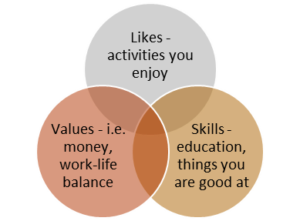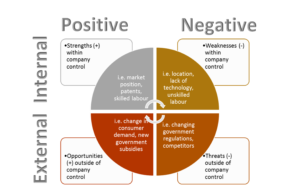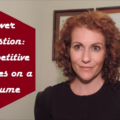There tends to be three types of job seekers: those who know exactly what they want to do, those who are so overwhelmed by the choices that are available to them that they don’t know where to begin, and those who are underwhelmed by the choices available that they wonder if they will ever find something that will pique their interest. If you fall into one of the latter two categories, then you know how difficult it is to even begin your job search. There are questions you can ask yourself, however, that should help point you in the right direction.
Career Path Discovery
To begin, ask yourself these questions:
1. If you won the lottery and money weren’t an issue, how would you spend your time? Why? Many of us dream of winning the lottery and buying our dream car, dream home, or travelling the world. What I’m talking about here is what you would do once you’ve enjoyed your winnings. Would you want to open your own business? If so, doing what? Is there an educational pursuit you would like to accomplish? The key here is to ask the ‘why’ behind this question. What is it about opening a particular business or studying a particular subject that interests you?
2. When were you the happiest at work (or school)? What was the project/subject? What, specifically, kept you engaged?
3. Do my friends have an interesting career path? What is it about this career path that is interesting? As an example, say that you have a friend who is a firefighter and you think that is an interesting career. What is it about being a firefighter that intrigues you? Is it helping people? Being seen as a noble member of the community? Are you a thrill-seeker?
4. Have your friends or family members said that they think you would be good in a particular profession? What reason did they give? As an example, my father often told me that I would make a good teacher because he thinks that I have a keen ability to break down complex ideas and translate it to a diverse audience. (Thanks, dad!)
5. What do you want to be known for? For this question, picture your retirement party. Who would be there and what would they say about you. Examples would be that you pioneered a medical breakthrough, that you were an inspiration to entrepreneurs, or that you helped others achieve their goals through your coaching or guidance.
Once you have thought through these questions, see if you can start to pick out any themes. For example, are you more driven by helping others, solving problems, conducting research, or debating?
Reality Check
It is important to include a healthy dose of reality in the mix. Some of the questions you should ask yourself include:
1. Do you have the qualifications required for the career path of interest? What would it take to get the qualifications? Are you in a position to invest the time and money to get qualified? For example, if you are a marketer who is interested in becoming a lawyer, you will likely have to go back to school to get your law degree, and then pass the bar – a thought that strikes fear into the hearts and minds of most soon-to-be lawyers. If getting such qualifications is not possible (for whatever reason), what elements of the interesting career path could you infuse into your current career? In our example, is it debating a case, conducting research, or advising others of their rights?
2. Can you make a living from the interesting career path? You can always search job boards to see if/how many opportunities exist in this field, and what qualifications are sought. As an example, during my undergraduate degree, I was interested in the field of health care ethics. When thinking through the opportunities available in this field at the time, they were extremely limited. This made my decision to pursue other interests much easier. In addition to the availability of opportunities, you need to think about the earning potential you would have and if it will allow you to support yourself and the lifestyle you have or want.
3. Will this career path fit with my current lifestyle? You may need to consider the overall lifestyle required for the career and if this is viable for you. As an example, if you are interested in a career as a consultant, you may need to travel and spend extended periods of time away from your home and family. Would this fit with your family or lifestyle needs?
Try Before you Decide
Once you have a few ideas of interesting career paths, try to find opportunities to explore the career path:
1. Volunteer – not only will volunteering help you discover if this is a career path you would want to explore, you can gain valuable experience and make meaningful network connections, all while giving back to your community.
2. Take it up as a hobby – this would be a great idea if you are interested in changing careers to something artistic like baking, or being a painter. It is also a great way to explore activities like yoga or fitness instruction.
3. Freelance – you can try working in an unexplored field, such as writing, on a part-time, freelance basis. This is another great way to gain experience and to discover if this is a career path that you like and at which you can earn a living.
4. Interest Interview – leverage your network and speak with people you know, or that people in your network know, to learn more about the career path of interest. People generally like to share their experience with others, and can inform you of both the pros and cons of their job.
5. Mentor – similar to the interest interviews seek out the advice of a mentor. Mentors can sometimes provide you with key insights or ask you additional questions that you could consider while making your decision.
6. Job Shadow – if you are currently employed, seek opportunities to job shadow in roles that you wish to explore.
Pulling it all Together
As you are exploring the various options available to you, you should be able to see themes emerge. You can take some of these themes and categorize them by a) your likes, b) your abilities, and c) your values. The Venn diagram below illustrates how these categories overlap:

The closer your list of possible career paths checks all three of these categories, the closer you are to finding a career path that you will love.
Final Thoughts
In addition to going through this exercise there are several books that you can read to help you on your quest:
Finally, there are several self-assessment tests that you can try to help point you in the right direction. One free test you can use is the MAPP self-assessment test. There is a paid option, but the free version is an excellent start. This assessment test is aimed specifically at helping you uncover careers that would align to your personality and interests.
Knowing what you are looking for is the first step in finding your dream job. As I’ve said before if you don’t know what you are looking for then how will you ever know that you’ve found it? For some, this can be a long journey, but like most things in life, the more you put into this self-discovery journey the more you will get out of it.
If you have any questions about this or any other job search topic, please feel free to leave them in the comments below. If you have any questions, video ideas, or would like to collaborate, please feel free to contact me directly. For personalized advice, check out the services section of this site.












